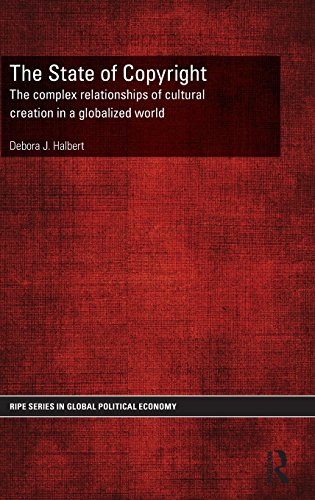

Most ebook files are in PDF format, so you can easily read them using various software such as Foxit Reader or directly on the Google Chrome browser.
Some ebook files are released by publishers in other formats such as .awz, .mobi, .epub, .fb2, etc. You may need to install specific software to read these formats on mobile/PC, such as Calibre.
Please read the tutorial at this link: https://ebookbell.com/faq
We offer FREE conversion to the popular formats you request; however, this may take some time. Therefore, right after payment, please email us, and we will try to provide the service as quickly as possible.
For some exceptional file formats or broken links (if any), please refrain from opening any disputes. Instead, email us first, and we will try to assist within a maximum of 6 hours.
EbookBell Team

4.7
16 reviewsThis book seeks to make an intervention into the ongoing debate about the scope and intensity of global copyright laws.
While mapping out the primary actors in the context of globalization and the modern political economy of information ownership, the argument is made that alternatives to further expansion of copyright are necessary. By examining the multiple and competing interests in creating the legal regime of copyright law, this books attempts to map the political economy of copyright in the information age, critique the concentration of ownership that is intrinsic in the status quo, and provide an assessment of the state of the contemporary global copyright landscape and its futures. It draws upon the current narratives of copyright as produced by corporate, government, and political actors and frames these narratives as language games within a global political project to define how information and culture will be shared and exchanged in the future. The text problematizes the relationship of the state to culture, comments on the global flows of culture, and critiques the regulatory apparatus that is in place to commodify culture and align it with the contemporary nation-state. In the end, the possibility of non-commodified and more open futures are explored.
The State of Copyright will be of particular interest for students and scholars of international political economy, law, political science, anthropology, sociology, cultural studies, library sciences, and communication studies. It also will appeal to a growing popular audience that has taken an interest in the issues of copyright.